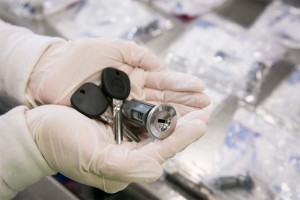When General Motors formally unveils the victims’ compensation fund later today, it’s expected to give a free hand to the administrator who will have to decide on how to pay out to those involved in crashes linked to the maker’s faulty ignition switches.
According to several sources, as well as published reports, administrator Kenneth Feinberg could eventually wind up paying out more than $1 billion, not only to the families of those killed in crashes caused by the ignition switch defect, but also to those injured, whether passengers or pedestrians, as well as those in vehicles struck by the now-recalled GM vehicles.
“He will have complete independence” from GM to decide who will receive compensation, and for how much, the automaker’s CEO Mary Barra said during a U.S. House subcommittee hearing earlier this month. Barra added that the compensation program will cover “everyone who lost a loved one due to this issue, or who suffered serious physical injury.”
Exactly how much that will come to – and how many will be covered by the plan — remains to be seen. The automaker has so far stuck with the number 13 when referring to those killed in crashes apparently caused by the ignition switch problem. But that only refers to drivers, and a recent study by the Reuters news service put the actual death toll closer to 70. Some suggest it could go even higher, especially when those struck by the GM vehicles are included.
(Faulty Takata airbags force yet another GM recall. Click Here for the story.)
Making the final decision will be up to Kenneth Feinberg, considered the country’s most experienced handler of compensation funds, having overseen both the 9/11 program, as well as the fund set up by energy giant BP to cover those impacted by its oil spill in the Gulf of Mexico.
The 9/11 program is expected to serve as a model for GM, and if that plan is followed, families of those killed by the ignition switch defect could look to payouts of around $2.1 million, with those injured receiving an average $400,000. The payout from the terror attack fund varied, however, with awards ranting from $500 to $8.6 million, according to a study by the Associated Press.
GM is hoping that the victims’ compensation fund will help it sidestep the flood of lawsuits that it might otherwise face. While there have already been some suits filed, potential beneficiaries also might prefer to go this route because of a legal loophole that might otherwise protect GM.
Under the terms of the bankruptcy settlement that let it emerge from Chapter 11 in July 2009, the maker effectively is shielded from prior damage claims. Anyone suing the maker would have to go after “Old GM,” the entity left behind in bankruptcy court. Those who accept compensation under the new fund would have to agree not to sue the automaker.
(No more firings for botched ignition switch recall, says CEO Barra. Click Here for the latest.)
Feinberg will hold a news conference in Washington, D.C. this morning to outline the “eligibility, scope, rules for the program, and timing of submitting claims,” according to a spokesperson.
(U.S. auto industry nears record number of recalls — and it’s only mid-year. Click Here to find out why.)
The program will officially begin taking claims on August 1, and a website will be set up for those who might qualify.
The fund will not cover everyone who might consider themselves victims of the ignition switch problem. GM officials have stressed that the plan will not extend to anyone seeking compensation for claims that their vehicles have lost value due to the defect.
A Seattle law firm earlier this month filed a class action lawsuit it said could run up to as much as $10 billion in damages due to this issue, but as TheDetroitBureau.com subsequently reported, there is little to no evidence to show that vehicles equipped with those faulty switches have lost residual – or trade-in – value.
In all, 2.6 million vehicles have been recalled as a result of the problem, a callback that was apparently delayed by as much as a decade, according to internal GM documents. The recall covers a wide range of older models no longer in production, including the compact Chevrolet Cobalt and Saturn Ion sedans.
The victims’ fund also will not cover any claims related to other recalls GM has announced this year, including one for all Chevy Camaro coupes produced since 2010 because they could also stall out unexpectedly.



This could mean cash for everyone – even those who don’t deserve it and who were not injured. The paid liars will however prefer Jackpot Justice via duped juries where unsubstantiated claims can make paid liars instant millionaires.
I bought a 2006 envoy this truck has been recall so much I faithfully changed the oil at 2500 miles six months ago on my way to work the oil pump went out and fried the motor .I am only bought GM products but I am done with their junk(the truck has 135,000 miles on it can I get my money back
Uh, Larry, you have 135,000 miles on it and want your money back?